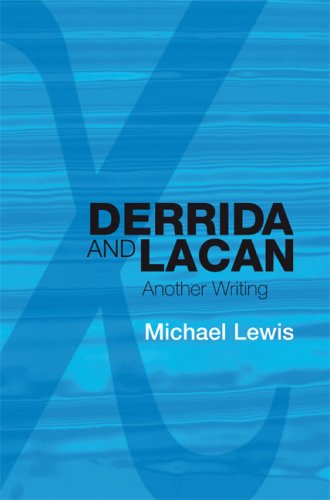

Most ebook files are in PDF format, so you can easily read them using various software such as Foxit Reader or directly on the Google Chrome browser.
Some ebook files are released by publishers in other formats such as .awz, .mobi, .epub, .fb2, etc. You may need to install specific software to read these formats on mobile/PC, such as Calibre.
Please read the tutorial at this link: https://ebookbell.com/faq
We offer FREE conversion to the popular formats you request; however, this may take some time. Therefore, right after payment, please email us, and we will try to provide the service as quickly as possible.
For some exceptional file formats or broken links (if any), please refrain from opening any disputes. Instead, email us first, and we will try to assist within a maximum of 6 hours.
EbookBell Team

4.0
56 reviewsA major comparative study of two giants of contemporary thought, this text reads Derrida's deconstruction against Lacan's psychoanalytic thought and argues that Lacan presents a form of deconstruction that is distinct from Derrida's. This approach opens up a critical engagement with Derridean deconstruction, demonstrating that attention to the order of the imaginary, along with the genesis of the human being and his language, should modify the relation between language and the real& mdash;deconstruction's central concern. Michael Lewis argues that this is psychoanalysis's contribution to philosophy& mdash;a way of relating transcendental thought to the empirical sciences, which Lacan draws upon in his theory of the genesis of the human being and language. Lewis argues that Derrida's thought represents the most advanced formulation of transcendental philosophy, and as a result, if the Lacanian criticism can be applied to his work, then it may be applied to all transcendental thought.
This book engages with the entire development of Lacan's thought in its attempt to demonstrate that the philosopher presents an alternative to Derrida's understanding of the nature of ''archi-writing.'' It represents a systematic development of Slavoj Zizek's presentation of a Lacanian alternative to Derridean deconstruction and will be of interest to all readers in continental thought, transcendental philosophy, psychoanalytic theory, and the relations between philosophy, the natural, and human sciences.